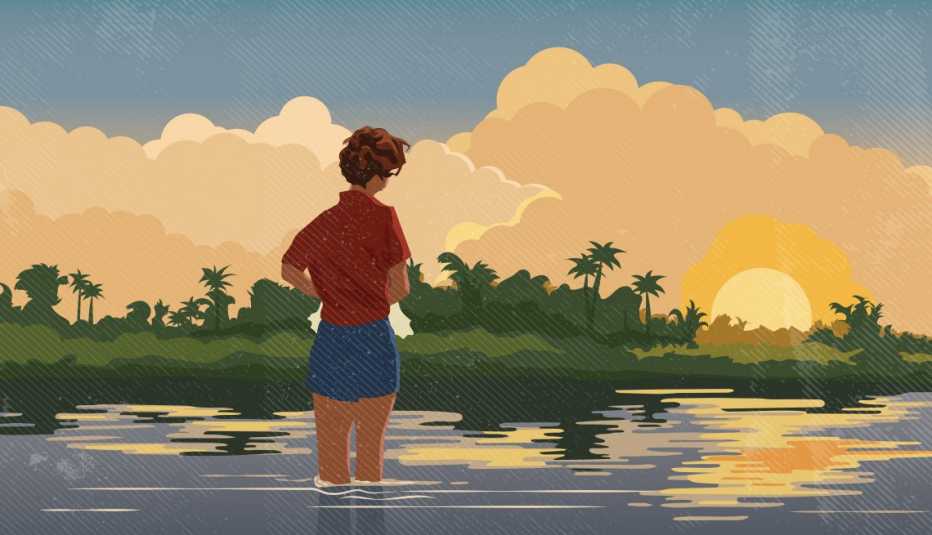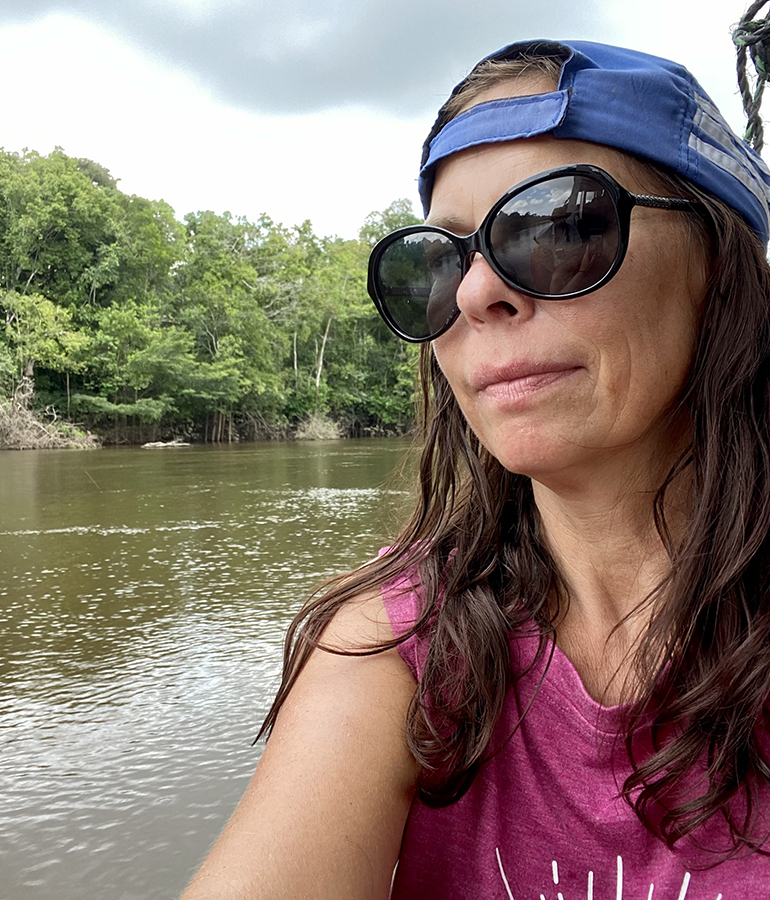Staying Fit


As I knelt by the murky waters of the Amazon watershed in Brazil, I scrubbed furiously at my single pair of underwear. Clad in a swimsuit, I treated that pair of gray panties like the treasure it was, washing them for the fourth morning in a row while hoping the piranha would stay away for the time it took to get them clean.
The sun was still just a fiery orange smear on the horizon, so the relentless biting black flies had yet to launch their blood-seeking assault. Only the distant roar of howler monkeys broke the silence. Somewhere in this jungle, a jaguar prowled. We had seen its paw print in the mud the day before, adding a new danger to the list of “things that could easily kill us in the Amazon.”
I booked this trip for my 50th birthday. Instead of a luxury river cruise that included champagne cocktails, chef-inspired dinners and air-conditioned cabins, I chose a nine-day adventure. Part of the excursion was spent on an open-air tugboat that required buckets of water to be bailed out of the engine area several times a day. Our “luxury accommodations” were mildewed hammocks strung up by the shores of the river. We ate whatever we could catch from the black waters, which was often piranha.
I wanted this. I wanted to see the Amazon in its primitive glory before industrialization, logging or climate change took away one of the last wild, untamed and, in some cases, unexplored regions on earth. I just didn’t expect to do it without my luggage. After the turmoil and loss of the past two years, though, I shouldn’t have been surprised.
I spent nine days in some of the most remote areas of the Amazon jungle, and losing my luggage somewhere between Sao Paulo and Manaus was just another blow in a year of losses. I had just ended a 26-year relationship, moved out of the house we shared for 17 years, downsized a lifetime of belongings to squeeze into a two-bedroom apartment and lost dear friends to a pandemic. And now I had lost all the clothing and gear I thought I needed to navigate a deep jungle exploration.
Yet, giving up the security of that duffel bag full of items made me realize that if I could survive this, I could survive an unpredictable future.
Best-laid plans
The Amazon adventure was booked for September. The pandemic was still raging in many parts of the world in March of 2021, so I, along with three brave friends who were crazy enough to join me, had months to plan.
When I say we thought we had prepared for any jungle situation, I mean that we packed compasses for when we got lost, Swiss Army knives in case we had to fight off jaguars with our bare hands, enough bug spray to wipe out malaria, water treatment pills in case we had to guzzle parasite-infested water, and a book on guerrilla warfare and jungle survival.
I also had two weeks’ worth of undies, three Columbia fishing shirts, five tank tops, three pairs of hiking pants, three pairs of shorts, three types of hats, a sweatshirt and light jacket for cool nights, numerous pairs of $24 wool socks, three different styles of bathing suits and other gear that I couldn’t even remember packing.



































































You Might Also Like
A Golfing Novice Finds Serenity in Letting Go
Scotland’s magnificent natural setting brings a newfound inner calmThrough Travel Comes an Understanding of Your Family’s History
For a longtime writer, visiting homelands brings the pastMore Members Only Access
Watch documentaries and tutorials, take quizzes, read interviews and much more exclusively for members